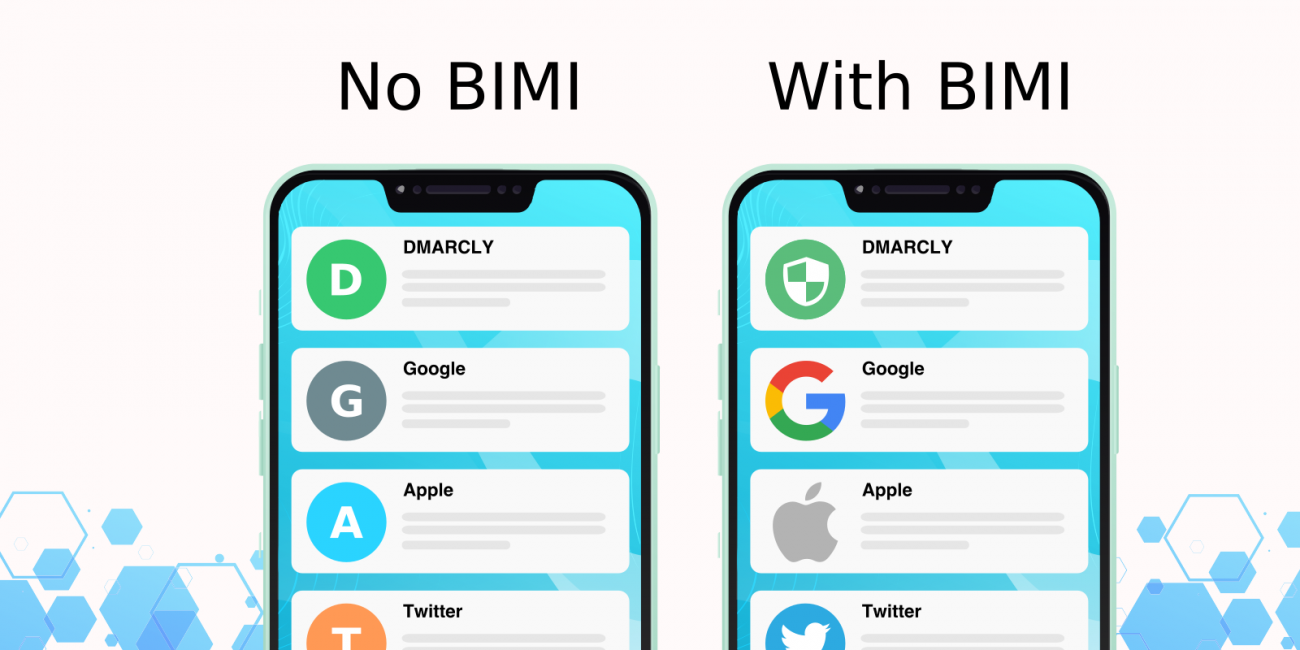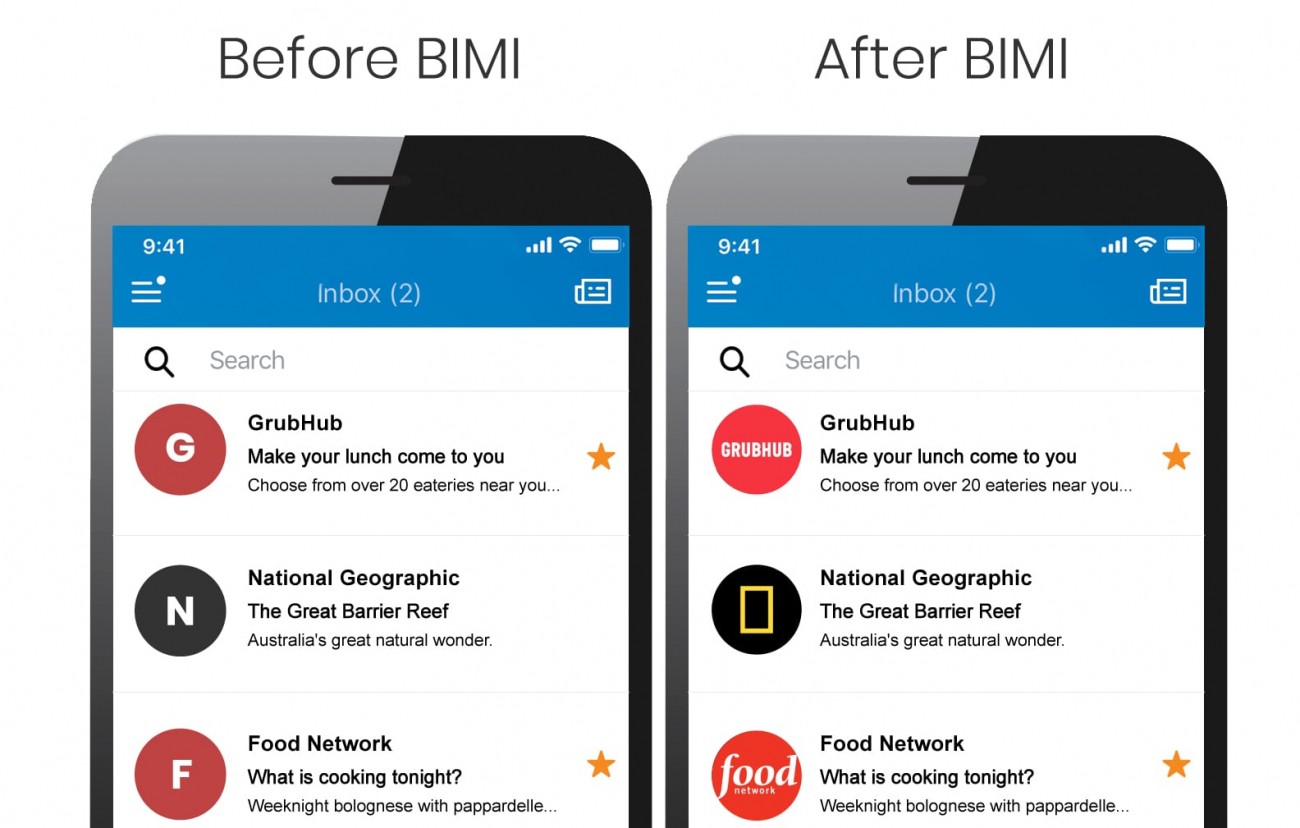
Brand Indicators for Message Identification (BIMI): yet another reason why you should protect your brand
Leaving the aforementioned considerations (as well as many others) aside, trademark registration also plays a crucial role in modern-day marketing. One application that highlights this role is Brand Indicators for Message Identification, or BIMI.
BIMI explained
BIMI is an increasingly popular email specification that allows users to incorporate logos in their email correspondence. With BIMI, the logo of the company sending the email is shown next to its message in the recipient’s inbox.[1] This makes it easier for the consumer to recognise who sent the email and to distinguish between legitimate communications and phishing attempts.[2]
Why use BIMI?
On the one hand, BIMI has become a popular tool for online marketers to increase brand value and ‘open rates’ (an email marketing metric indicating the percentage of recipients who open a specific email). According to reports, BIMI-certified emails are opened 10% more often than messages that lack a BIMI certificate. It is also an excellent means for making your message stand out in consumers’ crowded email inboxes.[3]
On the other hand, BIMI makes it easier for consumers to recognise that an email comes from a legitimate company. This in turn reduces the risk of them inadvertently opening a phishing message.[4]
The importance of trademark registration
The key purpose of a trademark is to identify the source of a product and/or service. When consumers see a specific name or logo, they know that the product or service in question comes from a specific company. In addition, a trademark serves as an assurance of quality, and inspires brand loyalty. What’s more, e-commerce platforms like Amazon and bol.com are increasingly requiring retailers to present a valid trademark registration before admitting them to their sales channels.
Registering your name or logo isn’t just important for the aforementioned reasons. In many cases, it has actually become a prerequisite for using the BIMI specification. Which is only logical, since BIMI ensures that only authorised users are able to incorporate a particular logo in their email correspondence.
In response, some email services like e.g. Gmail require users to present what is known as a Verified Mark Certificate (VMC) for their BIMI-certified logo. A VMC serves as digital proof that the logo referred to in the BIMI record is actually associated with the party sending the email. The issue of a VMC is validated by the Mark Verifying Authorities (MVA).
To obtain a VMC, the logo that will be used for BIMI needs to be registered as a trademark with an MVA-recognised trademark authority. At present, these authorities are found in the US, Canada, the EU, the UK, Germany, Japan, Australia and Spain. Naturally, this list will be expanded further over time as more trademark authorities are recognised by the MVA.[5]
Conclusion
With the on-going introduction of new marketing and anti-phishing tools, trademark registration is expected to become increasingly important in the years ahead. In view of the growing need to protect consumers and company, it is vital to register trademarks to discourage their abuse by scammers.
In other words, registering a trademark doesn’t just serve to confirm the origin of a product or service. It presents other advantages besides – clearing the path for BIMI, for instance, as well as, potentially, other sophisticated marketing and antifraud tools in the years ahead.
For further advice and information about your options, feel free to get in touch with NLO Shieldmark.
Contact NLO Shieldmark


